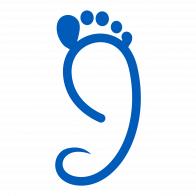Where to Start to Become a Pilot with a Disability
Many things will naturally flow the same as all student pilots. There are a few things to keep in mind as you start your journey to becoming a pilot with a disability.
Discovery Flight
Most often you will want to start by booking a discovery flight at a number of local flight schools. The discovery flight will (probably) give you your first chance to fly upfront in a small airplane. Virtually every flight school will offer discovery flights for relatively cheap and many offer little goodies like a logbook or a student pilot handbook.
It would be a good idea to visit several flights schools. The instructor (or instructors) you train with will be as important as any other aspect of your training. So make sure you work well with them and that they are committed to seeing your flight training through to the end.
It is also important to see what aircraft they fly. Most often it will be a Cessna 172 which isn’t the easiest airplane to get into from a wheelchair. You may have a preference for side by side versus tandem seating. A high wing airplane may allow for better clearance or a low wing may give you better access to the cockpit. You could also just feel better seeing a wing below you versus above you. The point is that it would be a good idea to sit in a few airplanes before you commit to a particular flight school.
Make a Plan
The medical process is often the most challenging part of becoming a pilot with a disability. After a few lessons, you will want to make sure you have looked at what license you want and make sure you have a clear path through the medical process.
Almost everyone thinks of the Private Pilot License (PPL) when they think of being a “pilot.” But the PPL is not the only license. To earn a PPL, however, you will need to pass a Third Class Medical. Even if you believe you can pass the deferral/appeals process, remember that it takes a significant amount of time and expense. It is not unheard of for student pilots to wait six to twelve months for a decision from the FAA.
Examine your goals in what you want to do with your pilot’s license. Are you going to fly yourself to a job in the next city? Then you’ll need that PPL. Just flying for fun to see the sights from 9,000 feet or get a $100 hamburger? Maybe the Sport Pilot Certificate is the way to go. Want to fly as cheaply as possible? Consider a Glider Pilot License (glider pilots are also some of the best pilots in my book).
And remember, the Sport Pilot and Glider Pilot don’t have to pass the Third Class Medical.
Buy an Airplane, or Don’t
No pilot is required to attend a traditional flight school. If you can’t find a flight school that offers the license you want in an airplane you can use, then you can probably find an independent CFI to train you. Some (not all) can train you in their own airplane or they can train you in your own aircraft.
There is certainly an argument to be made for buying your own airplane at the start of your training. Especially if it is a hard-to-find model or needs to be modified. (See our article about modifications here)
Be sure you have properly calculated the expenses beyond just the purchase price. Many airplanes can be bought for next to nothing because the cost to properly fix them up exceeds their market value. Insurance for some airplanes is more than others, so get a quote before buying. There are plenty of articles and websites to help guide you further in this process, but whatever you do, have someone of your choosing do the prebuy inspection. Reddit is full of horror stories that start with, “The seller’s mechanic did the prebuy inspection.”
Then again, owning an airplane isn’t for everyone. Keep an eye out for flying clubs or a group of pilots at your local airport who want to share ownership of an airplane. Or take the lead and create a flying club or gather a group of pilots to share ownership with. EAA and AOPA both have many resources if you want to learn more about starting either one.
Good luck, and fly safe!
Disclaimer: we at Rightfooted Foundation are not lawyers and nothing herein should be considered legal advice. Also, these things change with time. Go speak with someone who knows all the details and is up to date before taking any action.

